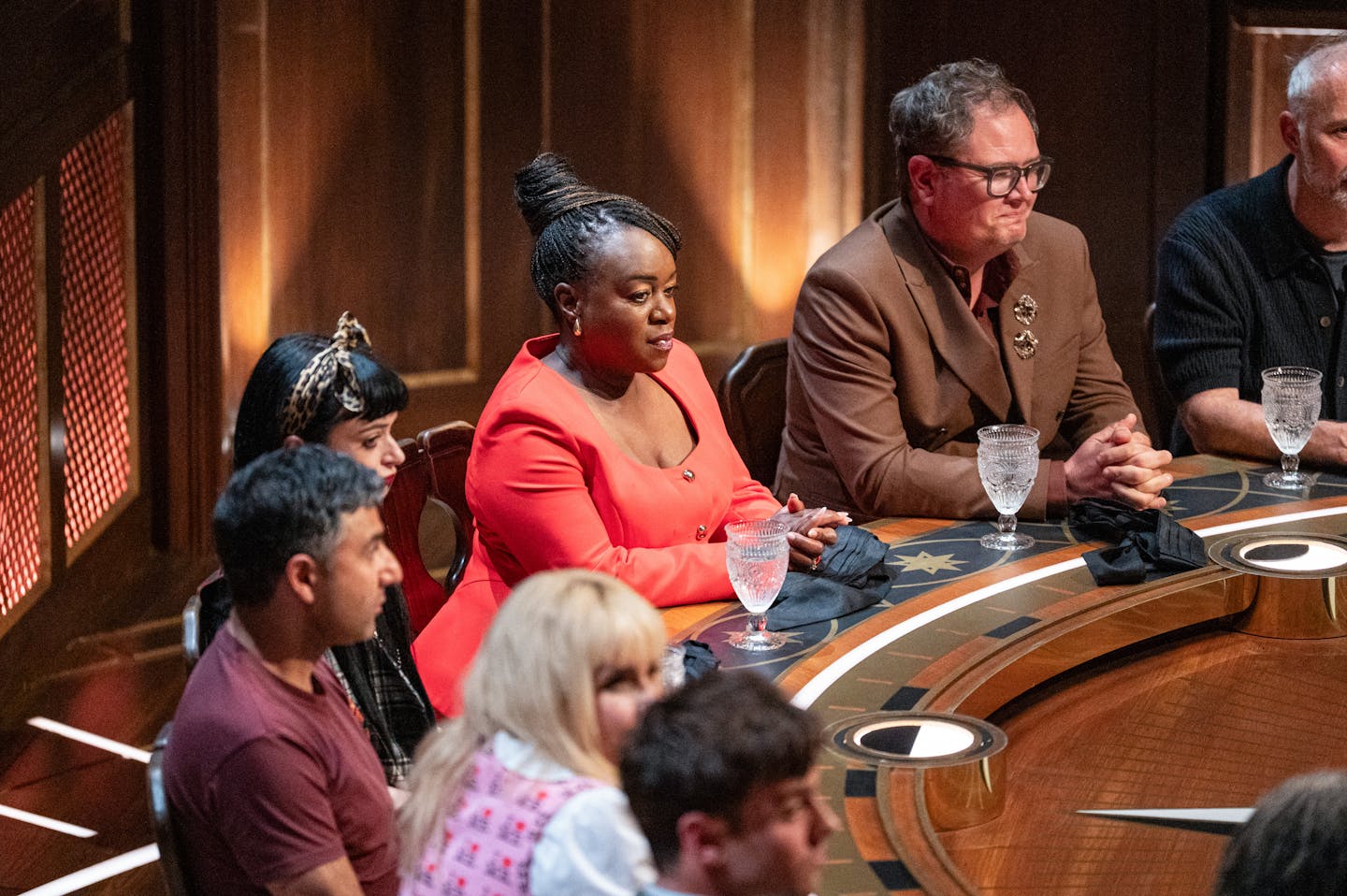The Traitors is a game built on lies and deceit. Contestants live together in a Scottish castle. Those secretly chosen as Traitors are tasked with “murdering” their fellow players while avoiding suspicion. The rest are Faithfuls, trying to banish the Traitors.
Of course, the Traitors must tell lies all the time to avoid getting caught – but many Faithfuls tell lies as well: to throw the traitors off their scent, build alliances or manage how other players think of them.
This means all players “take heat” at the nightly roundtable, when they are accused of being Traitors and telling lies. But what does psychology tell us about how best to defend yourself from accusations that you are lying?
Outside of TV shows, when you lie you have one big advantage: the people you are trying to deceive might not be looking out for any signs that you are lying. According to communication expert Timothy Levine’s Truth Default Theory, people normally assume that anything they are told is true – in other words, truth is the default.
This makes sense: people hear and read so much information in a day, and normally this information is true. Doubting everything we experience would be exhausting, possibly dangerous, and very bad for our social relationships.
If you are crossing the road and suddenly you hear someone yell “Stop!”, your first instinct should be to stop – not keep going, thinking: “I wonder whether they are lying to me.” And your friends would probably not stay your friends for long if you responded to everything they said with suspicion that they are lying.
This is something you can rely on when you’re telling a quick white lie. Whoever you are lying to is unlikely to submit you to a third degree in response to you saying: “We’d have loved to be at your party this weekend, but we just couldn’t make it.”
Strategies to use
However, on The Traitors, neither Traitors nor Faithfuls have that luxury. All other players are on the lookout for the slightest sign – a sly smile, a head turned at the wrong moment, an above-average vocabulary. Anything can lead to you being put under the spotlight. So, what options do you have then? Here are a few strategies to consider.
1. Think about the evidence.
What does the person who is accusing you know and what can they prove? Denying something vehemently only to have a third player say “You did say that, I heard it too” is likely to land you in hot water.
And don’t just think about evidence they have already confronted you with: consider whether your accuser might be holding other evidence back, to lure you into a lie and then confront you. This “strategic use of evidence” can be very effective for an interrogator, so guard against it.

2. Don’t protest too much.
When trying to look like you’re telling the truth, don’t overdo it. Your first instinct might be to do everything to look Faithful, but that’s not how normal truth-telling people behave. Doing too much can be as harmful as doing too little.
For example, research shows that many liars make too much eye contact. Because people think liars avoid eye contact, they try to prove they are telling the truth by staring into people’s eyes and end up giving themselves away.
3. Tell the truth.
Sometimes it might be better to just come out and admit you lied. The cover-up can be worse than the crime.
For example, in series 3 of The Traitors, when Lisa Coupland started being put under pressure over her lies, she decided she was best off coming clean and admitting she was an Anglican priest. This worked out beautifully: everyone believed her and the other Faithfuls stopped suspecting her of being a traitor (although the truth was almost certainly a factor in her “murder” four episodes later).
Strategies might not keep you safe for long though. The Traitors is a game designed to keep you on your toes. The rules of banishment mean all players benefit from you being the one who is accused. Once you have been named as a possible Traitor, any reprieve may well be temporary.
Faithfuls have long memories and can haunt you with the tiniest mistake, roundtable after roundtable. And even if they believe what they tell you, that might only make you a more juicy target for “murder”.
This article is republished from The Conversation, a nonprofit, independent news organization bringing you facts and trustworthy analysis to help you make sense of our complex world. It was written by: Lara Warmelink, Lancaster University
Read more:
- Celebrity Traitors: my research shows voting behaviour could help identify faithfuls
- The Traitors: why context is key when it comes to uncovering liars
- Why The Traitors is still a masterclass in the psychology of human deception
Lara Warmelink does not work for, consult, own shares in or receive funding from any company or organisation that would benefit from this article, and has disclosed no relevant affiliations beyond their academic appointment.


 The Conversation
The Conversation
 Raw Story
Raw Story Cover Media
Cover Media People Human Interest
People Human Interest New York Post
New York Post ABC 7 Chicago Entertainment
ABC 7 Chicago Entertainment